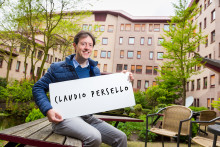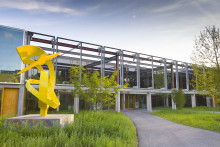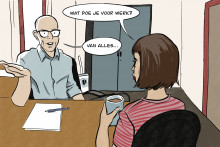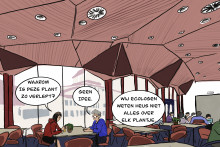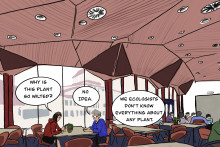Although Claudio Persello already used to teach back home in Italy, it wasn’t until he began working at ITC three years ago that he really started developing his teaching method. It’s based on patience, honesty, sensitivity and good communication – not only when lecturing, but mainly when listening.
Persello wants to know if the students are following his explanations, because he knows that the subjects he teaches are rather complex and that his students won’t always understand them straight away. Especially because all his students have different backgrounds, and so he often needs to tweak his approach to the needs of the specific group or individual.
When teaching, the Assistant Professor never only scratches the surface. He always goes into depth during his lessons and he is willing to explain the same matter in a thousand different ways. Whatever it takes for the students to grasp the complicated concepts they often encounter in his classroom. He believes this might be why he ended up in the top five of the ITC Teacher of the Year Award this year.
Regardless, Persello always mixes theory and practice. Instead of having two lessons – one when theory is explained and one when practical exercises are handed out – he prefers to show real-life examples immediately. He does give his students time for practical assignments, though. His courses follow a specially designed structure. After first introducing the topic in the morning, he gives students practical assignments for the afternoon. A day later, they can come back for feedback sessions.
During these sessions, students can pose questions and Persello asks them to present the answers to their assignments in front of the whole class. The teacher realizes this could be very stressful for some of them and that’s why he always reminds them it’s fine to make mistakes. He tries to create a friendly atmosphere, make students comfortable and assure them that there aren’t any punishments. It’s all about learning, no need to worry. The last thing he would want is to embarrass his students. In the end, all he wants is to transfer his passion for science and show the subject in a way that people enjoy, in a way that helps them see the beauty of it.


